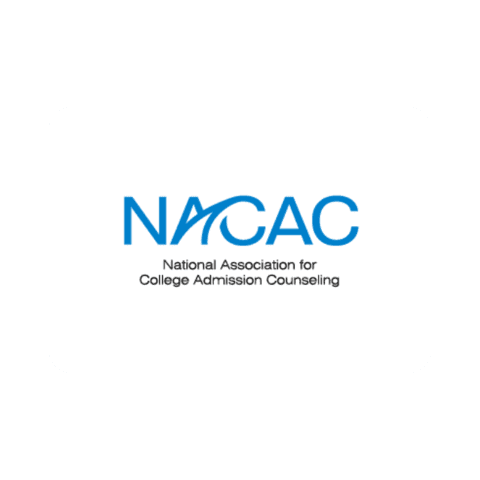For high school students, perhaps the most recurring question about your future is, “where should I go to college?” It’s the million-dollar question, and you can be sure to get a lot of different suggestions. In fact, there are over 3500 different degree-granting institutions in the United States to choose from. Before you get overwhelmed, though, let’s review some easy ways to narrow it down.
You Can Excel Anywhere
First, know that you can be successful at many, many universities. Sometimes high school students get focused on finding the “perfect” college, but this is a fraught exercise. There are many colleges that could be a great fit for your talents and interests. In fact, the best college is the one where you will feel comfortable, supported, and engaged in the campus around you.
This is especially true as it applies to college rankings. Take those “Top College” lists (like U.S. News & World Report) with a grain of salt – there are far too many student-specific considerations that go into your choice of college to be reduced to one list. Instead, focus on seeking out a range of schools that satisfy your personal needs.
Your Strengths and Talents
Every school specializes in certain areas – these range widely, from writing, to design, to pre-med. There are literally hundreds of specializations. Since the biggest thing you’ll take away from your college education might be your degree, the quality of the curricula is vital. Seek out colleges that are strong in areas of interest for your student.
Not sure what your college major or specialization will be? Empowerly’s team of experienced counselors can help you identify your core strengths and interests. Schedule a free, 30-minute video consultation to get started.
Affordability
Even if you’re not one of the lucky few who can afford tuition out of pocket, there is a wide range of federal, state, and private sources of financial aid to help you finance your college education.
While student debt is not to be taken lightly, do not let debt limit your consideration of colleges. Ultimately, the most concrete assessment of your final sticker price won’t be available until you receive a financial aid offer letter from your accepted schools. With this in hand, you’ll be able to better compare your costs. Plus, you can always decide whether a school is too expensive later on during your college search.
Distance
The importance of geography (aka where your college is located) can vary by student. For example, some students may be caregivers in their family and need to be close to home. It’s also valid to weigh the weather and climate of your college town! While it may not seem like a make-or-break factor, being absolutely miserable for the majority of the year won’t help you thrive.
For most students, however, you may not want to limit yourself by staying close to home. Just attending a school in another state can be an education in and of itself.
Big Schools versus Small Schools
Some students fear they will be lost in the masses if they attend a big university, but this is not totally true.
By your junior year of college, you will have selected a major, and much of your study will be concentrated in a specific department. You will develop personal relationships with faculty that can be as personal as you want them to be. You can also expect to develop a close social network through your living arrangements and your extracurricular activities.
In the end, you and your counselor will know best which student body size will suite you best.
Your GPA, Test Scores, and Extracurriculars
Each of these qualitative and quantitative variables impact your overall profile strength. Trying to weigh how each of these affects your college candidacy can be a complicated matrix. Luckily, Empowerly can help.
For example, check out your candidate competitiveness score from Empowerly. This data-driven tool will give you a specific score for your extracurriculars as part of your overall Empowerly Score.
Framing Your Options
In order to ensure satisfactory results from the college admissions process, you should group potential colleges into three categories: safety schools, target schools, and reach schools. Safety schools are the options where you will likely gain admission! Target schools are a bit less sure, but definitely within your capabilities. Reach schools (or high reach schools) are the most difficult to gain acceptance—but, you never know. Spreading your chances like this will offer you a broad range of colleges to consider.
Let’s break down the distinctions between these tiers next!
Safety Schools
So-called “safety” schools are those that you are likely to be accepted into — but this doesn’t mean that they need to be bad schools. Any college can provide a great education and experience for the student who takes advantage of the opportunity.
You can also keep in mind that it is possible to transfer to a more-desired school after one or two years. One good safety option is so-called “feeder” schools. For example, the California State University system supports junior-year transfers to the more-competitive University of California system.
Reach Schools
If you could attend any college, where would you like to go?
Your dream school does not have to be a name-brand Ivy League. It could be a college that has an amazing department in an area that you love. Or it could be a school that seems too expensive, or too far from home.
Pick a few reach schools to apply to. It will only take you a little extra time to apply. What do you have to lose?
Target Schools
These are your “sweet spot” schools – those that you’d like to attend and have a decent chance of getting into. These are the schools that you should ideally visit and interview with.
You’ll find that certain schools tend to naturally group together, and your college advisor and Empowerly can walk you through comparable options in your target school range.
You’re not alone
Learn more by scheduling a free, 30-minute video consultation with Empowerly today.


